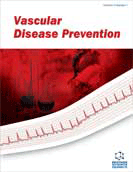Abstract
This study aims to investigate the alterations in the vascular reactivity of isolated aorta obtained in the early and late phase of adjuvant-induced arthritic rats and to determine the involvement of nitric oxide and prostaglandins in the pathogenesis of altered vascular reactivity ex vivo. Thoracic aortic rings obtained 7, 14, 21 and 29 days after adjuvant inoculation were used to assess contractile and relaxant responses in the absence and presence of aminoguanidine (0.1 mM) or indomethacin (0.01 mM). Phenylephrine contractility was significantly increased in 7-day arthritic aortae and restored with indomethacin in endothelium-intact rings. No significant difference in phenylephrine contractility of 14-day arthritic rings was observed. Contrarily, phenylephrine and KCl contractility were significantly inhibited in 21-day arthritic rings and reversed by aminoguanidine. Acetylcholine, but not sodium nitroprusside, relaxations were inhibited in all artritic groups, indicating a selective impairment in endothelial function, and restored with aminoguanidine. Endothelial dysfunction was confirmed histologically as the disintegration of endothelium in the intima without inflammatory cellular infiltration of tunica media or adventitia. Enhanced prostaglandin availability may have the major contribution in the development of increased vasoconstriction in the acute inflammatory phase of adjuvant arthritis, whereas overproduction of nitric oxide, probably endothelial in origin, may account for the hyporeactivity in the advanced phase of the pathology and for the endothelial dysfunction throughout.
Keywords: Arthritis, endothelium-dependent relaxation, nitric oxide, prostaglandins, vascular reactivity
 1
1

